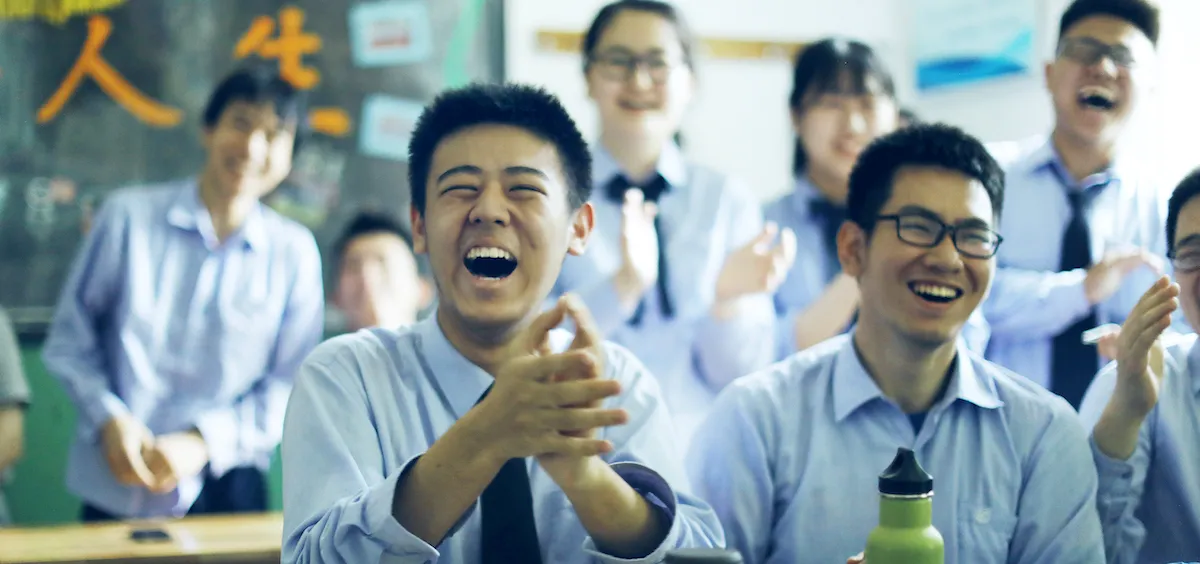On the origin of “positive energy,” the propaganda catchphrase that has taken on a life of its own
The recent suicide of 10-year-old Miu Kexin in Changzhou, Jiangsu province, apparently after a teacher criticized her work for lacking “positive energy (正能量)” has ignited debate around the now ubiquitous catchphrase.
The teacher, surnamed Yuan, received widespread criticism online, as netizens argued teachers should encourage critical thinking and be more flexible towards what constitutes positive energy. One commented on WeChat “in writing essays, the most important element is to express our real thinking instead of fabricating a positive attitude. By making up beautifying words, this fails to cultivate students’ real thinking towards society.”
In another incident, Zhong Yusheng, a 13-year-old middle school student whose highly accurate video impersonations of teachers went viral online, was apparently asked by his school to change his content to transmit more “positive energy.” Netizens complained that Zhong’s videos were amusing and harmless, and the school’s heavy handedness stifled creativity. “When I watch it I feel really happy. Isn’t that positive energy?” one Weibo user commented.
The term “positive energy” has become a widely used catchphrase in China to refer to anything from the work of the government to random acts of kindness to simply maintaining a good attitude at work. It has also become a favorite expression for government officials, the media, and educators.
Chinese foreign minister Wang Yi recently called for more positive energy in China-US relations, and President Xi Jinping directed media outlets to “transmit positive energy” in 2016. The phrase was used in over 600 articles in the state-run People’s Daily in 2014, and was mentioned 4,427 times in major state media in 2018. The term was “word of the year” in 2013’s Chinese Pandian contest.
Positive energy “doesn’t only related to advancing our era; it’s more about the growth of the spirit,” People’s Daily commented in 2016, linking the concept to the advancement of the nation. The phrase has come to “dominate both official propaganda and public discourses for years, being simultaneously highly politicized and highly depoliticized,” researchers Chen Zifeng and Clyde Yichen Wang suggested in a paper published in February 2020.
The phrase, which was used by netizens long before it was taken up by the authorities, has surprising origins in the work of British psychologist Richard Wiseman’s self-help book Rip it Up: The Radically New Approach to Changing Your Life which was published in Chinese in 2012 under the title《正能量》.
The phrase took off online in reference to the Olympic torch relay for the London 2012 Games. The organizing committee had named a number of ordinary Chinese citizens as torchbearers, such as a kebab seller who raised over 100,000 RMB to fund the studies of some 200 poor students by selling over 300,000 mutton skewers. Chinese netizens showed their support during the relay by using the hashtags “Light up positive energy and explode your microcosm (点燃正能量,燃烧小宇宙),” and “Ignite positive energy and good luck can’t be stopped (点燃正能量,运气挡不住).”
During the height of the Covid-19 pandemic in China, when many were staying indoors, anxious of what would happen next, “positive energy” stories in the media brought hope. Photos and videos of doctors working day and night to keep people safe, and laborers constructing hospitals in record time, helped citizens come together in the face of the deadly virus. A popular saying cautions, though, that it’s not always easy to stay positive: “You think it’s smooth sailing, in fact it’s someone sailing against the current for others (哪有什么岁月静好,只不过是有人替你负重前行).”












